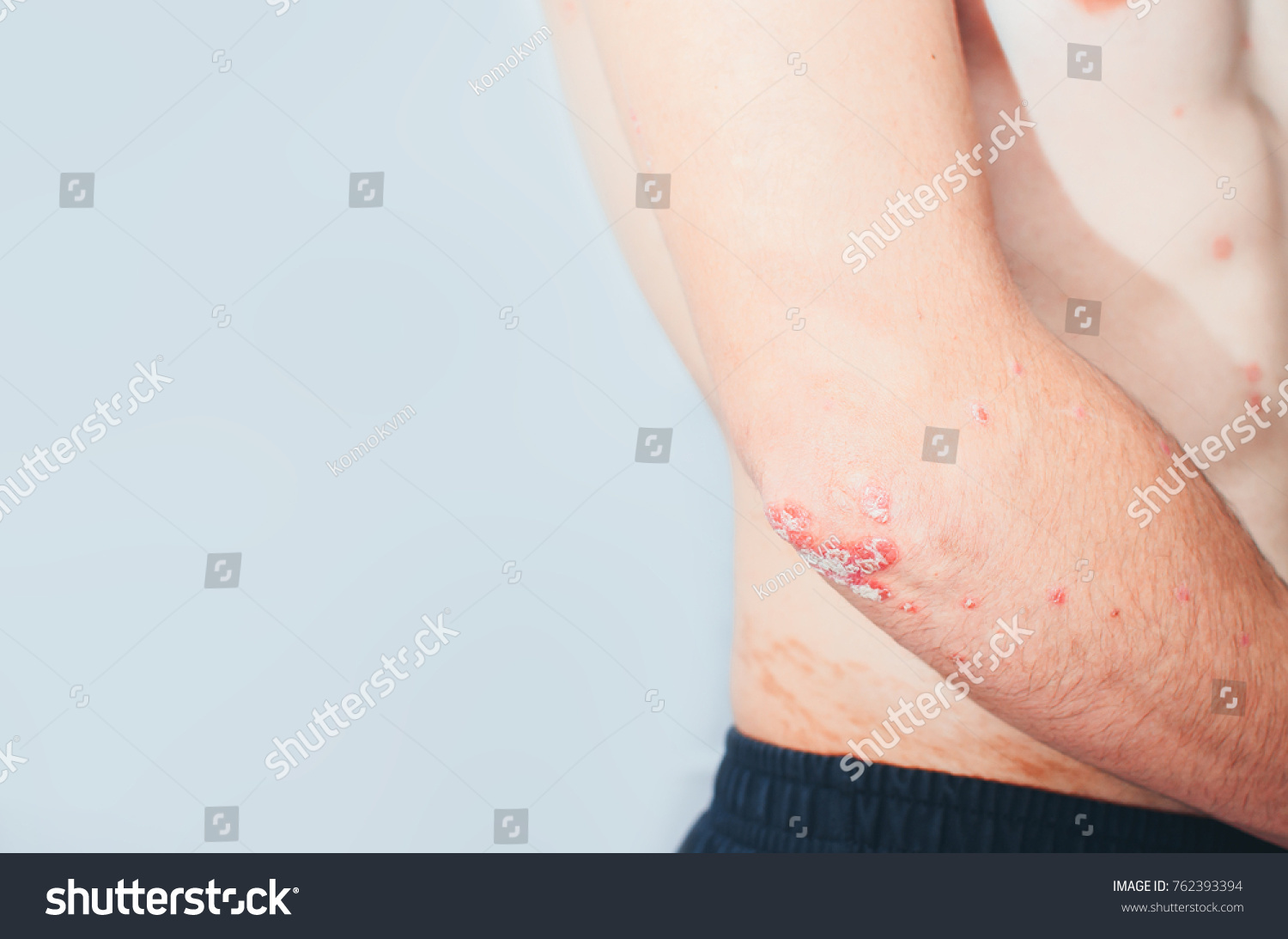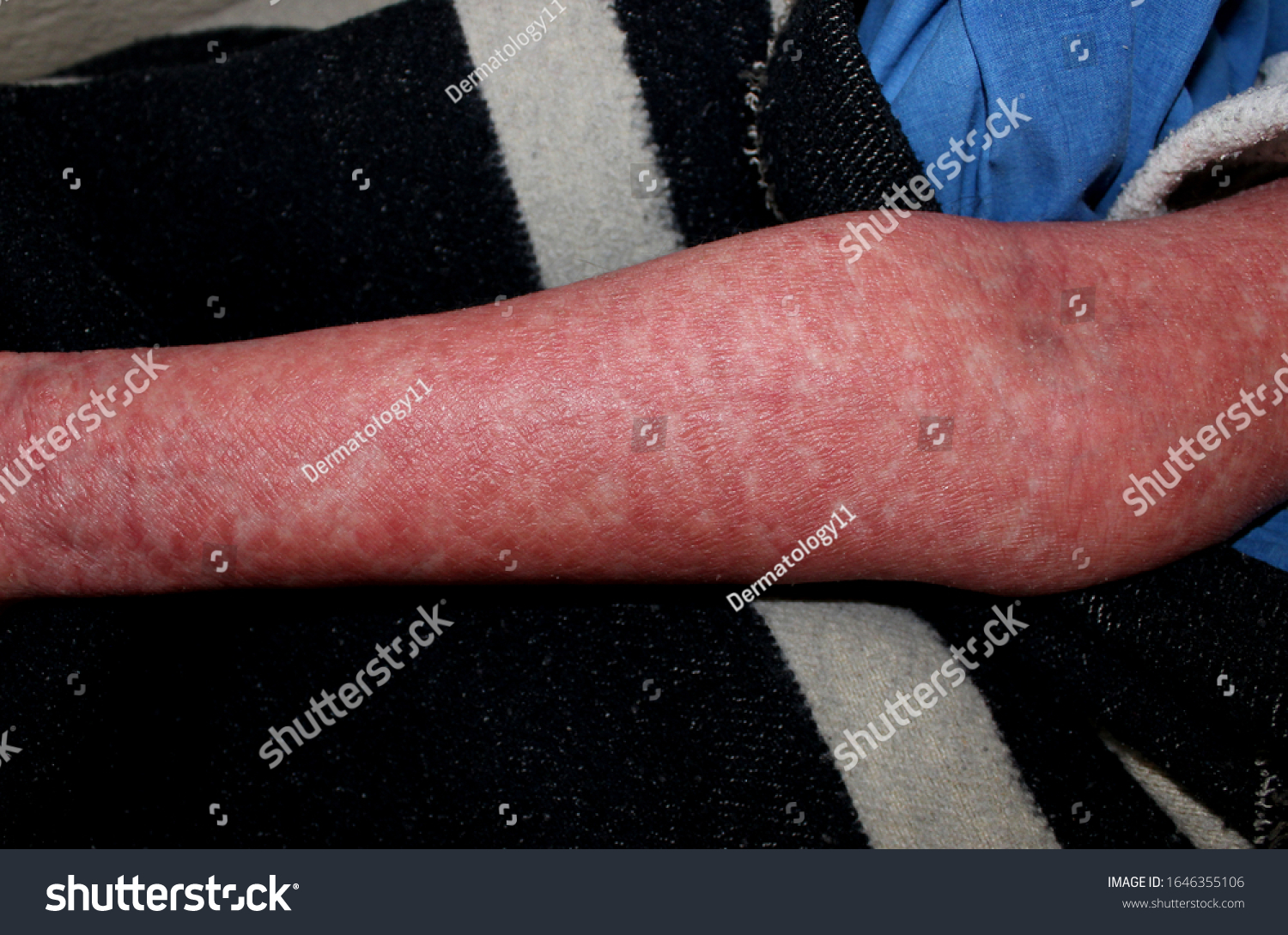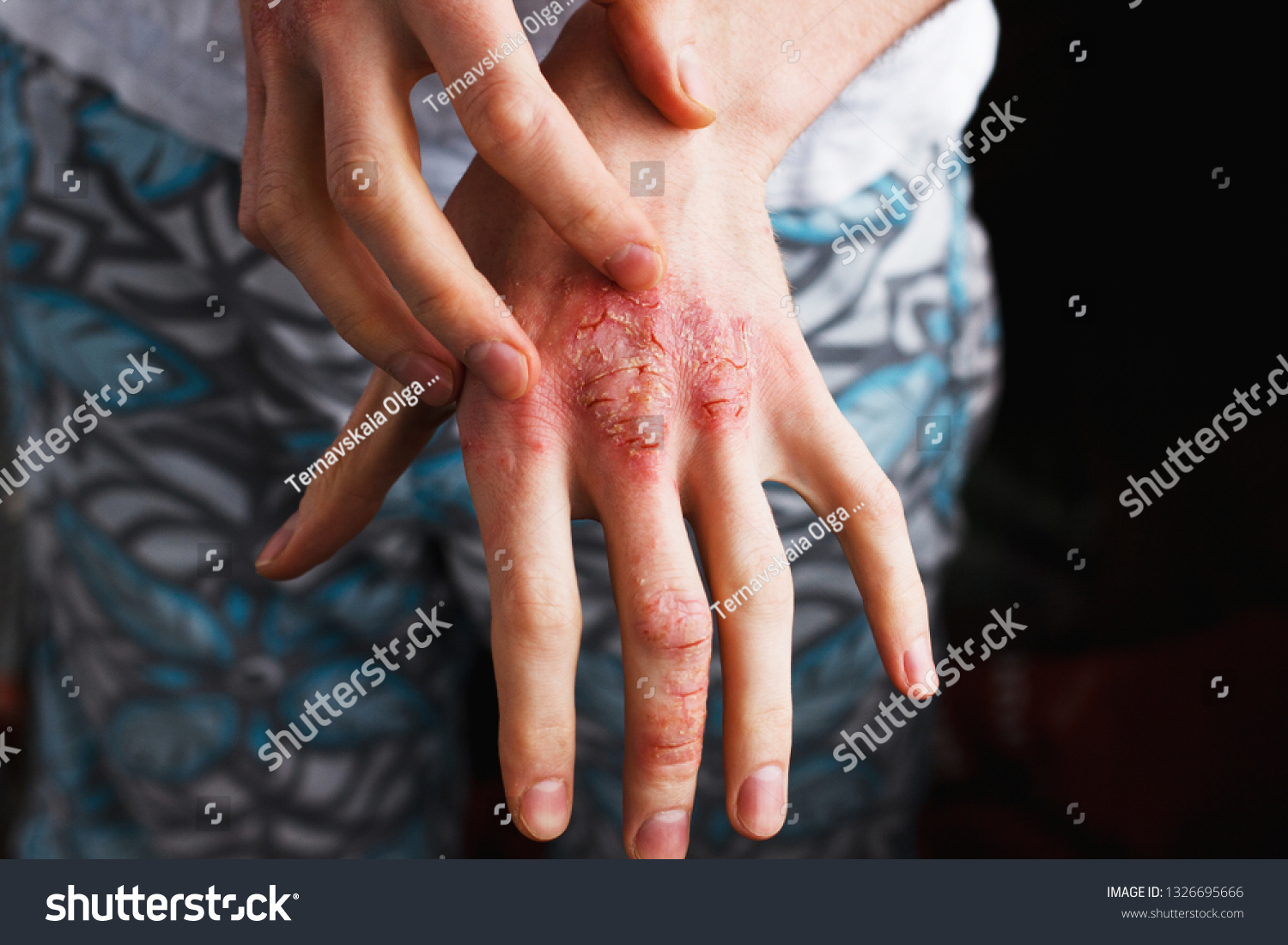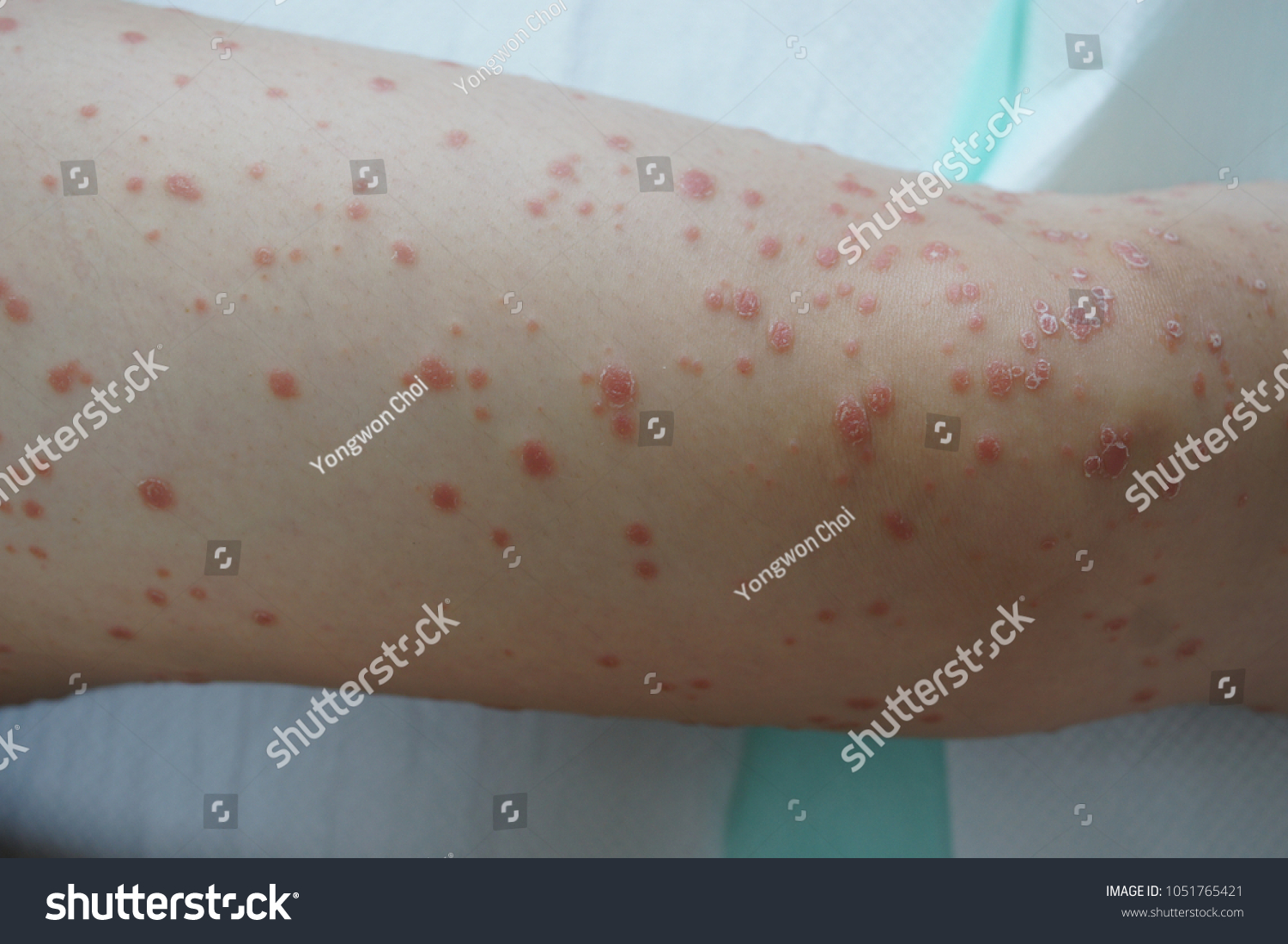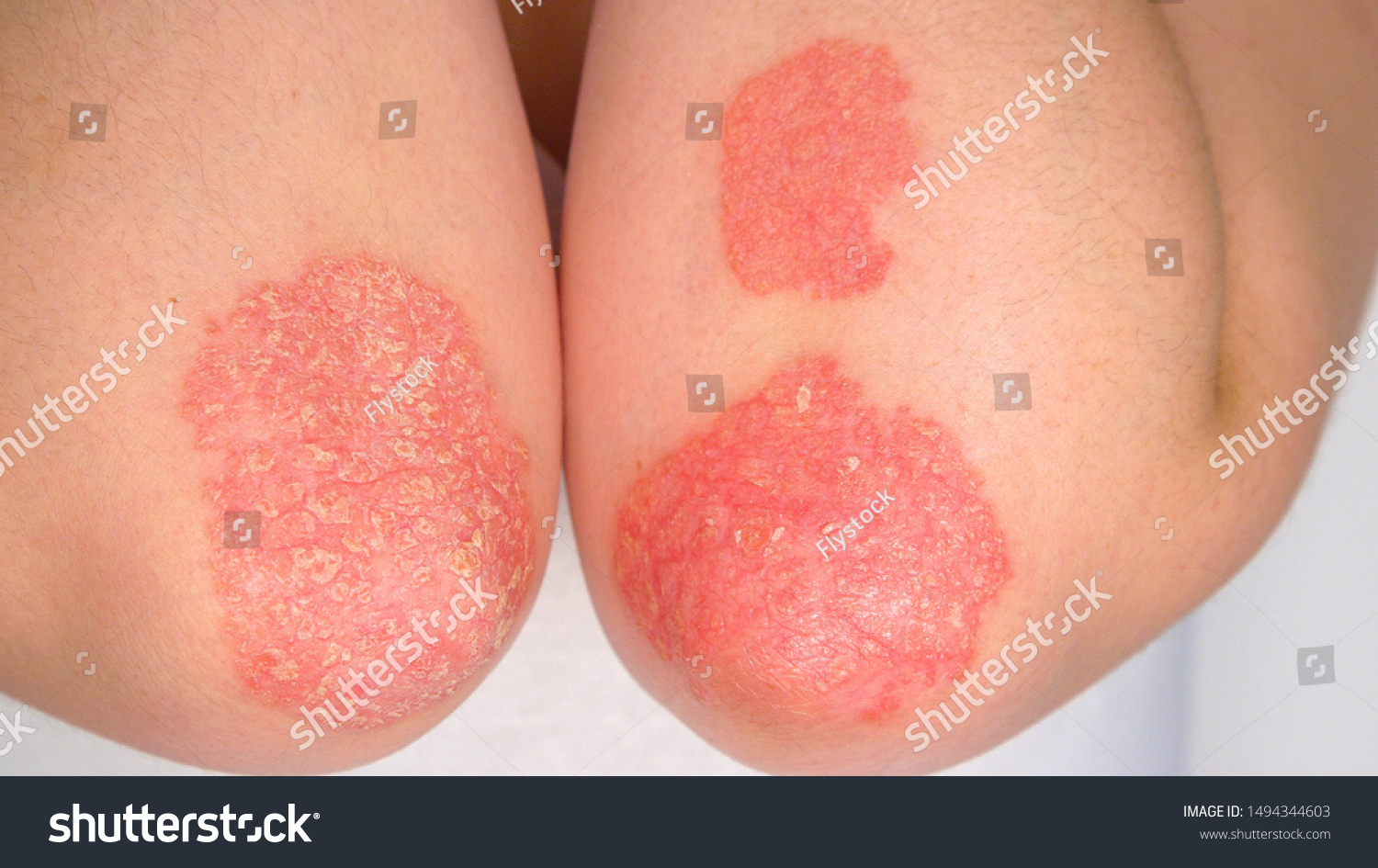Do you want to know more about psoriasis?
If you want to know more about psoriasis, you are in the right place! Understanding this disorder doesn’t have to be complicated, I have everything you need to know…
Your guide to psoriasis
You can skip to whichever section you’d like by selecting the options below.
What is psoriasis?
Psoriasis is a disorder of the immune system. The immune system inside our bodies acts as our defense mechanism against pathogens and disease that enters our body. An autoimmune disease or disorder is one in which the immune cells, known as the T-cells, start attacking our own healthy body cells. The healthy cells attacked are our skin cells hence psoriasis is also known as a condition of the skin.
The rapid destruction of skin cells causes them to multiply 10 times faster than they normally would. This causes the skin to form bumpy red patches that are covered in white scales. These scales flake off the skin when scratched. Speaking of scratching, it is one of the symptoms of psoriasis. Due to redness and inflammation, itchiness is increased which leads to us scratching our body. This in turn opens the wounds and the bumpy patches might start bleeding. Doing this makes it hard for the skin to heal.
These patches of skin can grow anywhere on the body but the most common places where they appear are knees, scalp, elbows and lower back. These places are more prone to psoriasis flares because they are edgy and sweat as well. Sweating can also irritate psoriasis and cause it to flare up more. Some people have a problem while taking showers in this condition. But a very well-known way of helping your situation is by getting yourself in a routine.
Exercise is known to help patients with psoriasis. There are other medical procedures and medications as well that you can undergo on the recommendation of your doctor and dermatologist. Psoriasis has no cure, but It can be tremendously reduced in magnitude if you follow the right steps and take proper measures to relieve the pain your skin is in.
What you need to know about psoriasis
Being an immune condition means that your body is too busy fighting its own healthy cells which makes you prone to infection. And the best place for the infection to surface are your patches. Psoriasis is known to be a genetic disease, which means that if you have inherited the genes, you are likely to get it.
As of right now, there is no cure for psoriasis but that does not mean you can not help the situation. Psoriasis is very treatable and can be helped to put symptoms to rest for extended periods of time. There are more than 1 type of psoriasis, most common of which is the plaque psoriasis which causes the thick scaly patches we see around our elbows, scalp and knees.
More than 100 million people are affected worldwide
In the United States alone, there are 150,000 cases of psoriasis annually. And it affects more than 100 million people worldwide. Psoriasis can appear at any time, but the most common age bracket is 15 to 35 years old. Males and females get it at about the same rate and according to International Federation of Psoriasis Association (IFPA), around 3% of the world population suffers from at least 1 type of psoriasis. This equates to 125 million people.
Usually psoriasis will form around the aforementioned areas like elbows and scalp, but in severe cases it can progress to different parts of your body like eyelids, nails and chest. Although formation of hard skin patches with scaly skin is common, you may also get thick, hard and pitted nails. The symptoms are very unpredictable. For some time, they will go away and you will feel fine, and then they will return and may be worse than before.
The most common type of psoriasis which is the plaque psoriasis makes up for 80% of the cases but there are other psoriasis types as well. For example, 30% of the people go on to developing psoriatic arthritis which leads to weak joints that hurt during any type of locomotion. And another 10% will develop a rare condition called guttate psoriasis that causes flares of small, round spots called papules that are raised from the skin and can sometimes form scales.
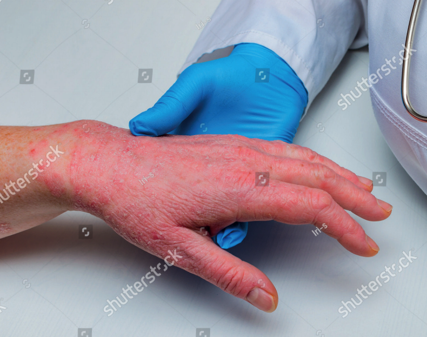
Causes of psoriasis
The exact cause of psoriasis is never fully understood and scientists and biotechnologists continue to work on finding the root cause and a cure for it, but it is thought to be a condition of the immune system where it fails to recognize healthy body skin cells and marks them as a threat to the body. These special types of T-cells are called neutrophils that normally patrol around the body in the blood stream looking for pathogen to eliminate.
When these cells fail to recognize healthy body cells as their own, they start attacking in an attempt to remove an infection or to heal a wound. When these cells travel into and close to the skin cells, they cause the blood vessels to dilate which is responsible for most of the redness observed on the skin and near the patches. Sometimes, pus is also collected in the pustular regions. These are basically dead skin cells and neutrophils.
The most common triggers that can flare up an on-going psoriasis disease are infections, injury to the skin and stress. These situations trigger psoriasis because they involve the immune system thereby enabling it to work more and

cause patches of scaly skin to show up. Other triggers are smoking and heavy alcohol consumption. Alcohol is known to flare up psoriasis as our liver is not able to fractionalize the alcohol properly during this disease and causes the condition to worsen. Smoking makes it difficult for the blood to carry much needed oxygen.
A deficiency of vitamin D or use of certain medications like lithium or beta blockers, anti-malarial drugs and iodides are also known to trigger psoriasis. The silver lining here is that all these conditions are avoidable if we refrain ourselves from indulging into alcohol and smoking or try to stay indoor and away from exposure to infectious agents like viruses.
Related articles
What drug can cause psoriasis?
Drugs and psoriasis Drugs may be known to heal diseases if respected, but they are also known to mess things up when abused. And similar is the case in psoriasis. Some of the drugs you take to treat your other health conditions, can cause psoriasis. What usually...
Is there a permanent cure for psoriasis?
Cure for psoriasis Everyone wants to know if a disease is curable. And likewise people ask is there a permanent cure for psoriasis? Unfortunately there is no cure for psoriasis yet. But biotechnologists and scientists are constantly working on new methods to come up...
Can drinking alcohol cause psoriasis?
Do you have to give up drinking? Psoriasis is a condition that causes dry, itchy and scaly patches to form on your skin. It is a result of extreme multiplying of skin cells. The question on everyone’s mind is does drinking alcohol cause psoriasis? And although the...
Who gets psoriasis?
The gene for psoriasis is so widespread and common that there is a high chance that you might get it. But do not worry as it is very treatable. The chance of getting psoriasis is present even when there is no history of psoriasis in your family. And that is because of the many environmental conditions around you. Due to lack of knowledge for all the triggers, may they be environmental or biological, we can never truly tell what exactly might have been the cause. If one of your parents have psoriasis, there is a 10% chance that you will get the disease. However, if both of them have the condition, then your chance of developing the skin condition is progressively increased to around 50% which is a lot.
We already know that men and women develop psoriasis at a fairly similar rate. Hence all rumors about men developing it quicker than women are denounced. You are most prone to it during the age of 15 to 35 so stay careful and do not expose yourself to the triggers during this time in your life. Psoriasis develops in all racial groups but at different rates. About 1.9% of African Americans develop psoriasis as compared to 3.6% Caucasians. About 10% to 15% of the people who have psoriasis, develop it before the age of 10. Some infants also have psoriasis, but this happens rarely. Probably the biggest worry looming over your head is whether psoriasis is contagious or not. It is not. Psoriasis can not be transmitted from one person to the other. You will not catch psoriasis if your best bud has it so no need to secretly worry just so you don’t hurt his/her feelings. It is fairly easy to
If one of your parents have psoriasis, there is a 10% chance that you will get the disease
diagnose psoriasis as well as the symptoms tend to be very visual and easily discernable.
Biotechnologists are coming up with gene deletion and modification techniques to help remove the issue from the start and this offers a very safe way to approach the matter as well. Thus, ultimately enabling people with disease to live without a worry.
The uncertainty of the disease exists but is out shadowed by the faith in a curable future where this condition can be completely eliminated. And scientists are working hard to make it possible. The foreseeable future for the eradication of this disease looks illuminating and there is hope for its cure.
Symptoms of psoriasis
Psoriasis is a disease that varies a lot from person to person. What usually starts as a little scaly patch on your scalp can grow and cover majority of your body before you know it. The rate at which it develops and proceeds to take over is also different among people. The most common visual symptom is the formation of red scaly patches on the skin, but it does not just end there. There is a lot more to the symptoms of psoriasis, some of which do not meet the eye but are present and hence cannot be overlooked.
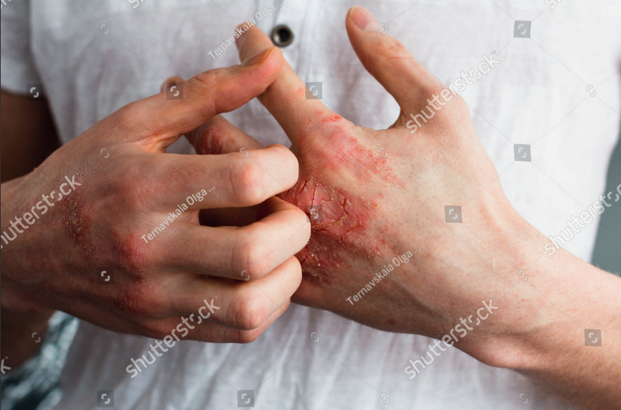
Red scaly patches of skin start developing on the body. These patches are inflamed and that leads to itching. Itchiness is also a big symptom of psoriasis. Soreness around the patches is also observed. Itchiness leads to scratching which ultimately causes the patches to start bleeding. This is not good at all since it delays the
healing process of skin. Wounds become fresh again and the immune system starts attacking more healthy skin cells.
People also feel burning sensation around the patches which can be very uncomfortable and lead to uneasiness all the time. Nails are a modification of the skin which means they are also affected by psoriasis. Thick, pitted nails are a symptom of this disease where nails form pits and small craters. This makes them hard to cut and remove. Locomotion is also compromised when joints are affected by swelling. This makes it hard to go by your daily life. It hurts to walk and patients usually do not move a lot.
These were the visible symptoms but that does not mean there are no hidden symptoms. The body’s immune system works all the time against healthy cells which means it requires a lot of energy. This leads to use of a lot of glucose inside the body to be utilized which is converted to ATP. ATP is the energy currency of our body and is recognized as the molecule of energy. When all energy is used by the body, patients start feeling tired. Low energy all day long leads to little to no movement. Restlessness and weakness also start to take over.
Depression is a major symptom that is not talked a lot about. But it is equally as important as all other symptoms. A study shows that people with psoriasis are twice as likely to be depressed as compared to normal people. This means that even if you have a mild case of the skin condition, you are likely to develop depression. Depression can harbor a lot of problems like being unable to stick to your treatment plan. Or not wanting to eat which leads to more weakness. And what is even worse is that anti-depressants can make psoriasis worse and flare up more.
The best solution for all these symptoms is to follow the treatment plan you have been given by your dermatologist or doctor. And in order to do that, you need to be mentally healthy. Psoriasis is a disease that can be helped make better. These symptoms can go away if you eat healthy and avoid triggers. If you take timely medication and save your energy. So, stay positive!
Complications of psoriasis?
We’re afraid symptoms are not the end of psoriasis as there are more complications that come with the disease. These complications, once again, affect different people at different rates. Some may not even develop some of these complications at all. It all depends on the anatomy and biology of your body.
Psoriasis arthritis is a complication stemming from psoriasis that causes swelling of joints which leads to damage and lack of function among them. This can make movement hard and can be the root of a lot of pain. Another complication is development of eye conditions. There are certain eye disorders that are commonly observed in people with psoriasis. They are conjunctivitis, blepharitis, and uveitis. They affect the eyes and cause sight problems. Obesity is a weird complication that is linked with psoriasis and till date, the exact reason for it is not known. Some pin it on the fact that people with psoriasis have inflammation of skin and that is
linked to obesity. While others say that it is due to the laziness that comes with psoriasis. Lack of activeness may lead to obesity.
Type 2 diabetes is linked to people with psoriasis. The more severe the psoriasis, greater is the likelihood of developing type 2 diabetes. High blood pressure is a common occurrence in psoriasis patients. And this makes sense as well since immune cells move around in the blood stream. Their concentration is required by the body hence high blood pressure makes sense.
Linked to high blood pressure is cardiovascular disease. When the blood needs to be provided at a fast pace, the heart starts to work overtime and may lose its rhythm. This leads to cardiovascular problems. Also, since the immune system is vulnerable now, development of other autoimmune diseases is highly likely.
Diagnosis of psoriasis
This is one of those diseases that are very easy and straight forward to diagnose and that is due to the obviousness of symptoms. When you go to the doctor, he/she will take a look at your medical history along with any visual symptoms. These are the red scaly patches on your skin. The doctor will also be able to tell the severity of the disease and how well you will be able to do against it. The latter is heavily dependent on your medical history. Taking a look at medical history helps the doctor make effective clinical decisions about what is and isn’t right for you moving forward.
There is another way of diagnosis for psoriasis as well. This procedure is called biopsy in which a sample of skin is taken for analysis. First, an anesthetic will be applied and then the retrieved skin will be studied under a microscope. This will help in determining the exact type of psoriasis you have, or if it is unclear, it will help in ruling out other forms of psoriasis so the target can be narrowed down.
Psoriasis diagnosis is not difficult as the disease presents itself in a more obvious way. Psoriasis can be treated, and symptoms can disappear just as fast as they appeared. But that is possible through diagnosis first of course. Hence, do not ditch you doctor visits. They are very important.
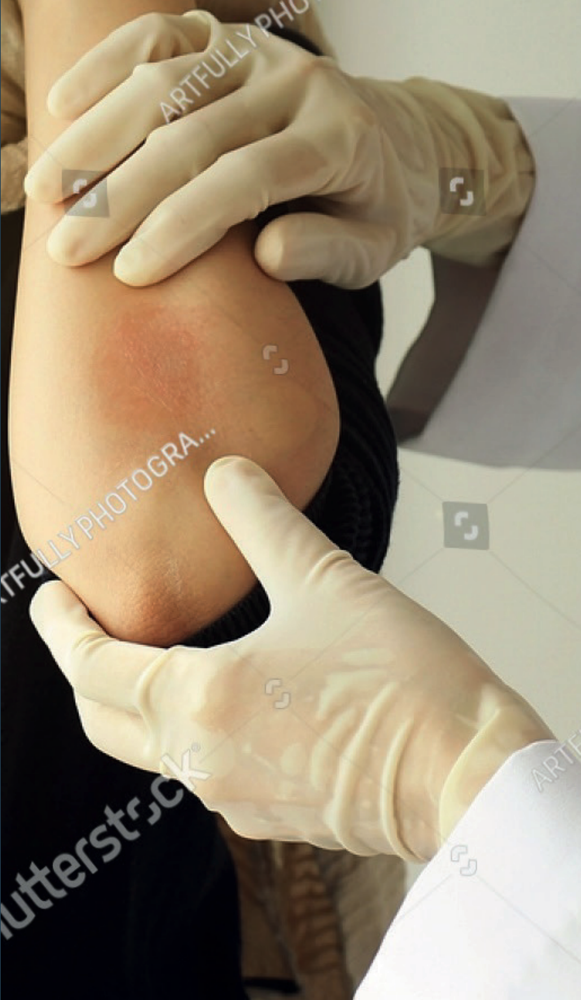
Types of psoriasis?
Psoriasis has different types, all with varying degree of severity and symptoms. The most common type of psoriasis is the plaque psoriasis which is discussed the most often as it affects majority of the people. In this type, patches of scaly dry skin start developing on the body. Itchiness and inflammation are also symptoms of plaque psoriasis. Another type of psoriasis is called guttate psoriasis. It appears in the form of small red spots on the skin. It is the second most common type and usually happens during childhood or young adulthood.
Flexural or inverse psoriasis is a less talked about type as it is rare. This is a skinfold type that
appears under the breast of in the groin regions. It looks red and smooth. Pustular psoriasis is a severe type of psoriasis that develops in the form of white pustules that are surrounded by red skin. They develop fast and affect isolated areas of the body like feet and hands.
Erythrodermic psoriasis, also called exfoliative psoriasis, is a rare type that looks like burns on the body. The condition is serious and requires immediate medical help. Lastly, we have psoriatic arthritis which affects the joints and weakens them, making it hard to move. Locomotion is compromised in psoriatic arthritis.
Psoriasis unguis
|
What is it? Psoriasis unguis is the psoriasis of the nails that can affect both fingernails and toenails. It results in the discoloration and deformity in them. “Pitted nails” is the commonly used term for it and best describes how they appear. Psoriasis of the nails can take a heavy toll on one’s physical as well as emotional life. But a treatment for them is available. It is found out that 80% to 90% of people with plaque psoriasis also have psoriasis unguis, and 70% to 80% of people with psoriasis arthritis have it too. It is almost as widespread as plaque psoriasis. Once again, being psoriasis, it is a chronic disease of the immune system. And although it causes changes underneath the skin, the effects are presented above it, visible to the eye. Nail psoriasis can also accompany other diseases as it spreads from the root of the nail. It grows from the nail root underneath the cuticle and starts to branch off. Symptoms Symptoms for psoriasis unguis are very discernable and easy to distinguish. Nails are found to be pitted, which forms indentations and holes. White spots with grooves across the nails are also observed alongside a change in nail shape and size. This leads to thickening of the nails which separates them from the nail bed. You may also see crumbling of nails where they disintegrate easily. Soon, discoloration follows where you start to see off-white or yellow color in them. Blood is also found underneath the nails which can dry and harden if not removed. |
How to cure it? Psoriasis is incurable but very treatable, especially of the nails. You can go about it by using certain topical creams that are applied directly to the nails. Popular creams include ingredients like corticosteroids, calcipotriol, tazarotene and tacrolimus. A combination of these ingredients as well as on their own can tremendously help with nail psoriasis. Other than topical treatments, we have systematic medication. These include methotrexate and cyclosporine. These are prescribed usually when your locomotion is hindered by your nails and it becomes difficult to apply topical treatment. They take visible effect in a longer time duration than topical treatments. Lastly, you have intralesional therapies which involve doctors injecting medication into the nails. |
Mucous membrane psoriasis
Mucous membranes are epithelial tissue that secrete mucous. Mucus helps in protecting different sensitive structures like the auditory systems, urogenital systems, and respiratory and digestive tracts from pathogens like bacteria and fungi. Most of the mucus of the body is produced in the gastrointestinal tract. Mucus basically traps all the pathogenic particles and prevents them from invading the inside of our body. It stops pathogens from entering the respiratory tract or the healthy cells that are found inside. Mucous membrane performs a very important job of protection.
Psoriasis of the mucous membrane is a bit of a controversial topic. It is obviously very rare in occurrence and many scientists and dermatologists believe that it does not exist. Some famous scientists like Darier have recently denied its existence while Jadassohn admits to the possibility of its presence.
Psoriasis of the mucous membrane has been closely linked with leukoplakia which is the formation of scaly white patches takes place inside your mouth. There are many irritants that can cause this condition like smoking and drinking. And psoriasis can possibly be acting as one of the irritants here.
There are many who now believe that mucous membrane psoriasis has nothing to do with leukoplakia. Reports of several plaques on the buccal mucosa have surfaced which described them as grey or yellowish white, round or oval and sharply circumscribed.
Psoriasis of the mucous membrane may affect the consistency of mucus. It can either make it extra thick which is not good for the body as it will block the cavities inside, or it can make the mucous very thin where it will not be able to perform its function in protecting the body against harmful pathogens like bacteria and fungi. Heightened production of mucus can also be a symptom where excessive mucus id produced inside the body, more than what is required. This can be dangerous as they can block and overwhelm all cavities of itself.
Chronic plaque psoriasis
|
What is it? Chronic plaque psoriasis is the most common type of psoriasis that affects the skin. Red scaly patches develop on the skin which may vary in size from small to large. Itchiness and inflammation are 2 core symptoms, and plaque psoriasis is treatable. It can be reduced but It does not completely go away. Only topical treatment can reduce its affects but is not enough on its own. Symptoms: Symptoms of chronic plaque psoriasis include red scaly patches of skin that can get dry and itchy. This leads to scratching which makes them bleed. Bleeding is another symptom of psoriasis. Inflammation also happens during psoriasis and it is due to the hyperactive immune system that responds to every little situation in the body and goes after destroying healthy skin cells. Depression is also a symptom of psoriasis which can lead to mental exhaustion. This is dangerous as it keeps you from sticking to your routine and having a healthy routine can help psoriasis a lot. It can help make it better. Laziness is also a symptom of psoriasis which leads to feeling tired and weak all the time. This is because the body uses a lot of energy for the immune system and that can lead to tiredness and low energy all the time. Once again, being psoriasis, it is a chronic disease of the immune system. And although it causes changes underneath the skin, the effects are presented above it, visible to the eye. Nail psoriasis can also accompany other diseases as it spreads from the root of the nail. It grows from the nail root underneath the cuticle and starts to branch off.
|
How to cure it? Psoriasis cannot be cured. Unfortunately, there is no treatment out that can completely eliminate the condition from within your body. But it can be helped tremendously and made better. There are a lot of topical creams that can help reduce the redness and scaly patches from the body. It makes the skin soft and easy to heal. These topical creams include corticosteroids and coal tar. Increased use of these creams can be dangerous hence controlled quantities are very important. Another way to treat psoriasis is with UV radiation. This can help reduce the inflammation and get rid of the scaly hard skin from the body. But extended use of UV can also be harmful as it can develop skin cancer. Putting yourself in a routine can help you a lot with psoriasis. Taking baths and working out helps the body heal better and fight the problem well. Eating healthy and using essential oils are also known to help reduce the severity of the skin condition as well. Plaque psoriasis may be chronic but can be easy to deal with if we follow what our doctors and dermatologists tell us. |
Exfoliative psoriasis
|
What is it? Exfoliative psoriasis, also known as the erythrodermic psoriasis, is a form of severe psoriasis which is rare and develops in a rather aggressive manner. The body experiences a rough burning sensation which stems from a peeling rash that spreads around the body as it starts to give an itchy and burning feel. The itchiness can be extreme and often leads to scratching which can cause bleeding. The skin turns over new cells at an extremely fast rate with which the body simply cannot keep up and ends up producing an excess of skin. If complications for erythrodermic psoriasis arise, it can be life threatening and requires immediate medical attention. It affects the pool of people who already have an unpredictable and unstable form of plaque psoriasis. Exfoliative psoriasis can develop on the onset of plaque psoriasis or, worse case scenario, it can form alongside another rare and uncommon form of psoriasis called von Zumbusch pustular psoriasis. Having both of them at once can be extremely lethal. Symptoms: It is rather easy and quick to discern between a normal plaque psoriasis and exfoliative psoriasis as the symptoms are very obvious and extreme. The pace at which the symptoms develop is also varied among patients. Some may develop on the onset of plaque psoriasis very quickly while others may develop them gradually without any plaque psoriasis flare up previously. Symptoms of erythrodermic psoriasis include severe redness on the skin that spans a large area on the body, skin shedding that takes place in the form of large sheets rather than in small scales or patches, pustules and blisters form that are filled with pus that is dead skin and immune cells, the skin appears to look burnt with severe itching that can often lead to bleeding and intense pain is also a very common occurrence. Body temperature along with heart rate and hence blood pressure all rise due to the immediate need for blood circulation all the time. The body needs to get rid of the heat, so the arteries remain dilated. Fresh blood needs to be pumped to circulate all the immune cells needed. As this condition alters the chemistry of the body, some people may also experience swelling around their ankles, joint pains and chills with fever. Cold sweats may take over and create a very uncomfortable situation.
|
How to cure it? Exfoliative psoriasis can be difficult to treat when the complications arise. As of right now, there are 2 ways to approach the situation. One is through topical treatment which include creams and oils that can help make the skin soft and let it breath, and the second one is through drug therapy. It is important to first check for any other health complications that the patient may have because the treatments are to be carried out likewise. If someone has a condition existing alongside erythrodermic psoriasis that may catch fire and get worse, the treatments cannot be given. In that case, a change of plans will work. In topical treatment, steroid creams along with moisturizers are applied to soften the hard skin and allow the medication to seep through in order to work properly. Other than this, wet dressings and oatmeal baths are also known to relieve the pain to some extent. Make sure that you are not allergic to any of the ingredients before you try these topical treatments. Drug therapy includes taking cyclosporin or Remicade that are standard first-line treatments. These are known to be the fastest working treatments, but some doctors may also suggest methotrexate. |
Pustular psoriasis
|
What is it? Pustular psoriasis is type of psoriasis that causes inflammation of the skin and sometimes joints are also caught in the crossfire. The leading cause is the same as other psoriasis which is related to immune system not functioning properly. It starts attacking the healthy skin cells and cause the skin to start producing new cells at an extremely high rate. This form of psoriasis is rare and very severe as it involves inflammation that spreads throughout the body. Small white pustules filled with pus develop on the body and can be very painful and itchy. On light skin, the patches appear red while on dark skin, the color of patches darkens. There are other types of pustular psoriasis as well. These are palmoplantar pustulosis and acrodermatitis continua of Hallopeau, which affects the hands and feet. Pustular psoriasis can also happen during pregnancy. It requires medical treatment and a combination of topical as well as other therapeutic measures to help clear the skin quickly. Symptoms: In pustular psoriasis, flare ups look like red inflamed skin with pustules that are filled with pus and fluid which gives the body a yellowish color. They can be very painful and cause uneasiness. Itchiness is also a symptom and that can cause release of these body fluids along with bleeding. The pustules can burst and release the fluid and if this fluid dries, it may look hard, yellow and crusty. The skin around the patches appear red and hard. It becomes flaky and starts to crack also. Presence of pus is not an alarming situation since your body is not infected by any bacteria or virus, it is just dead white blood cells that have accumulated to form pus. In the start, the skin becomes heated which makes it tender, this leads to formation of pustules within a few hours. In 24 hours, these pustules join together to form pools of pus. After a cycle is complete, the areas of pus dry out and reveal a shiny skin. And the cycle begins again from there.
|
How to cure it? Like all psoriasis, a cure for the condition is not available yet. But it is very treatable. Topical treatments are available that include topical steroids and emollients to apply to the affected area. This softens the skin and allows it to breath. Systematic medication taken through oral route or injected, can also be prescribed by the doctor. Lastly, biologic medication to treat the flare ups and patches is also available. It is important to refer to the doctor before trying anything. |
Guttate psoriasis
|
What is it? Guttate psoriasis is a type of psoriasis that shows up on your body in the form of red, scaly teardrop shaped small spots. It usually affects children or young adults and these patches do not leave any scars once gone. It is definitely not as common as plaque psoriasis as only one third of the people with plaque psoriasis develop this condition. Like any other form of psoriasis, this is also an autoimmune disease which means the immune system attacks healthy skin cells of the body which, in turn, leads to increased production of new skin cells. For some people, the condition may last for a little time and for others, it may prevail for a longer duration. The degree of severity is also varied from individual to individual. But with the help of doctors and the right type of treatment, you can help alleviate a lot of the pain that comes with the condition. Symptoms: The patches you get from guttate psoriasis are not nearly as big as the ones from plaque psoriasis. Sometimes, you can get both conditions at once in which case, you will see all sizes when it comes to patches of dry scaly and itchy skin. The areas where it starts are arms, legs, chest and stomach. From there, you may see a spread to your face, ears and even scalp. To get the scaly skin out of your hair can be tricky and difficult. However, it will not show up on your nails or palms and feet like other psoriasis tend to do. Hence, you will not experience any pitted nails which are a discomfort of their own. There are 3 stages to guttate psoriasis which include mild, moderate and severe. In case of mild psoriasis, you will see little spotting on your skin. About 3% of the skin will be affected. On moderate level, you will experience about 3% to 10% coverage of the skin. And on severe level, lesions cover 10% or more of your skin. Could cover the entire body. |
How to cure it? A cure is not available, much like all other psoriasis types. But you can treat the condition with topical creams like cortisone that relieves itchiness and swelling. Dandruff shampoos and body lotions can help soften the skin and remove the dryness in the form of scales. Prescription medicine that includes vitamin A and other necessary nutrients for the condition are also available. It is important to listen to your doctor and go by his/her plan. |
Psoriatic arthritis
|
What is it? Psoriatic arthritis is another form of psoriasis that affects some people that have plaque psoriasis. As the name suggests, this disease affects the joints and makes them painful to move, ultimately hindering locomotion. Most people are diagnosed with psoriasis first and later on go to develop psoriatic arthritis. However, sometimes the joint may appear before scaly patches start to show. Psoriatic arthritis usually results in joint pain, stiffness and swelling, but sometimes may also include your spine and nails. Severity of the disease varies from one individual to another, and the flare ups may alternate with periods of remission. Sometimes, the symptoms may go away for a long time. Sometimes they may stay for a long time with minimal time for remission. Symptoms: Typically, psoriatic arthritis, much like plaque psoriasis, worsens over time but you will find times when it will go into remission. Symptoms include joints that are affected on one or both side of your body. They weaken over time and make it hard for you to move around. Swelling on the fingers and toes is also common where they look like swollen sausages and are very painful to the touch. Any pressure on them hurts very bad. Tendon and ligament pain is also common where they join the bone. This is significant around the foot region. Lower back pain in a condition called spondylitis which causes inflammation of the joints between the vertebrae of your spine, and joints between spine and pelvis which can get very bad over time. |
How to cure it? A cure for psoriasis is not available yet but doctors are working tirelessly with biotechnologists to come up with a cure for the disease. Until then, it is possible to treat psoriatic arthritis. Nonsteroidal anti-inflammatory drugs for psoriatic arthritis can relieve pain and reduce inflammation which is one of the root causes for the disease, but you may get side effects like stomach irritation and heart problems. Disease-modifying antirheumatic drugs (DMARDs) are available that help slow down the progression of psoriasis and can potentially save joints and other target tissues from further damage. Lastly, immunosuppressants are available that help in controlling the immune system and slowing it down as it is working overtime in psoriatic arthritis. These medications target specific parts of the immune system, while collectively slowing down it’s activity to a crawl. It is always advised that you use any or all of these medications and treatments as per your doctor’s suggestion. |
Treatment of psoriasis
An incurable disease does not mean it is also untreatable. Matter of fact, psoriasis is very treatable. And if you follow the right and trusted procedures, you can reduce the severity of this skin condition. There are ways to go about it and its all about finding balance and what suits you best. Take note that not all of these will work for everyone as we are different biologically. All of us react different to treatments. Treating psoriasis is more of a practice in the hit and trial department as you keep trying different ways until you find the one that works best for you.
Since psoriasis causes uncontrollable cell growth, using vitamin D helps control the rapid multiplication of skin cells
Topical treatments are creams and ointments applied on the affected area of skin. The ingredients for these creams are corticosteroids that are used with coal tar to reduce inflammation and itchiness. They are the most commonly prescribed medication to treat mild psoriasis. Long term use and overuse of these ingredients can cause skin thinning which can be dangerous.
Vitamin D analogues are also used to treat psoriasis as they slow down the growth of skin cells. Other well-known ingredients are calcineurin inhibitors and salicylic acid.
Light therapy is a way to treat psoriasis as well. it uses UVA and UVB light from the UV index to treat psoriasis affected skin. It burns and removes the dry skin cells, revealing fresh skin from beneath. But overuse can prove fatal as UV radiation is known to cause skin cancer and other ailments related to skin. UVB light is used to treat mild cases of psoriasis however for extreme cases, PUVA light is used at it has a much deeper penetration. There are risks associated with both of them hence a doctor’s super vision is advised.
Oral and injected medications are also available that help your body from the inside. These include immunosuppressants that help calm down the immune system as it is working overtime. An example of this is cyclosporin. Methotrexate is also used as a medication that helps with reducing increased production of skin cells.
How to cure psoriasis permanently?
Disease has been a major roadblock in the way of mankind since the beginning of time. No matter what form it approaches us in, it always lets itself be known. Some diseases are worse than others, some reach a conclusive cure while others just stay and linger on as long and far as life takes you. Psoriasis is definitely among the latter. The question looming over all of our minds as to whether psoriasis is curable or not, the answer is no. Unfortunately, there is not cure out yet. But that, in no way, means that the condition cannot be treated and made better.
Psoriasis is a chronic condition of the skin which stems from a dysfunctional immune system. It is an autoimmune disease. The immune system starts to mark and attack healthy cells of the skin. This causes the skin cells to grow at a rapid rate, causing patches of dry scaly skin with inflammation to form all over the body. It will not go away on its own if you are hoping for that. However, if treated correctly, it can go away for years at a time for many people. Of course, how it affects us is different for everyone as there is a varying degree of severity of the condition.
There are ways to treat psoriasis and help your body revive. The best way to help yourself is to eat healthy. This is a very important subject that not a lot talk about. And because the change comes slow, a lot of people do not believe in it. But it is crucial for psoriasis. Taking dietary supplements along with healthy organic food can help psoriasis flares to ease up. Preventing dry skin can also help patches to disappear. For this, you can use topicals available over-the-counter or prescribed by your doctor. These help sooth and soften your skin so the scales fall out and fresh skin from beneath can surface.
Reducing stress by engaging yourself in activities can also help. Putting yourself in a routine is very important. Avoid alcohol and smoking as it triggers psoriasis. Finally, there are some medications that can either be injected or taken orally that help psoriasis. These include immunosuppressants that tame the immune system, and vitamin A that helps with inflammation.
There may not be a cure out yet, but doctors are working hand in hand with biotechnologists to engineer new treatments, in hopes of one day completely curing the disease.
Related articles
What foods cause psoriasis to flare up?
Food and psoriasis When you have psoriasis, it is important to avoid and exclude certain foods from your diet. This is called reducing triggers. As to what foods cause psoriasis to flare up is concerned, we will take a look at some foods that need to be avoided at all...
What drug can cause psoriasis?
Drugs and psoriasis Drugs may be known to heal diseases if respected, but they are also known to mess things up when abused. And similar is the case in psoriasis. Some of the drugs you take to treat your other health conditions, can cause psoriasis. What usually...
Can psoriasis cause fatigue?
How fatigue relates to psoriasis? To fully understand whether psoriasis causes fatigue, it is crucial to know what fatigue is. Fatigue is defined as extreme tiredness resulting from mental or physical exertion, or illness. And since psoriasis is a form of illness,...
Medications and creams for psoriasis
There are a lot of medications and creams available for psoriasis treatment. As to how well they will work, completely depends from one person to another. To start with creams, topicals are available on prescription as well as over the counter. Corticosteroids is an ingredient used in creams for psoriasis along with coal tar. These are the most commonly prescribed creams as they help soften the skin and remove the scales. This helps reveal fresh skin from underneath. Itchiness and inflammation are also helped with these ingredients.
Salicylic acid is another very important ingredients available in creams and lotions. Usually found in shampoos, it helps with removing scales from the scalp. Retinoids are available in the form of gels or cream applied once or twice daily. They help with softening skin as well. However, their extended use can be dangerous. Not advised for pregnant women.
Calcineurin inhibitors reduce inflammation and plaque buildup. They are not as strong as coal tar and corticosteroids so they can be used around sensitive areas like the eyes, where others might be irritating and cause harmful effects. However, there are some precautions you need to take before using calcineurin. If you are pregnant or plan to get pregnant, these inhibitors are not advised. If you are breast feeding, then you should refrain from taking them also.
Some of the medications available to be taken orally or via injection are steroids that are injected if you have a mild case of psoriasis, retinoids that can be used to reduce the rapid skin cell growth, methotrexate that is usually administered weekly as a single oral dose and helps with suppression of

inflammation and rapid skin cell growth, cyclosporine suppresses the immune system so it can be controlled, and biologics are injected medication that help affect the immune system and disrupt the cycle of the disease which helps improve the symptoms overall.
Some other medications include Thioguanine and Hydroxyurea that are used when the aforementioned drugs cannot be administered to the patient for some biological reason. They are helpful in reducing itchiness and inflammation. Take word from your doctor before trying any medication. Medical advice before going for any of these treatments is crucial for good results and safety as well.
Systemic therapies:
Systemic therapies to treat psoriasis are often used to achieve bigger goals.
Systemic therapies affect the immune system and the entire body to effectively reduce symptoms related to the disease over a larger area. These are often used for moderate to severe cases of psoriasis. There is a fair share of advanced treatments available to treat psoriasis, should you choose to go that route. There are side effects associated with systemic treatments as well. Your doctor will make you aware of them when you choose to go about them.
Advanced systemic psoriasis treatments include oral medication like acitretin, cyclosporine and methotrexate that help reduce rapid skin cell growth, inflammation and tame the immune system, biologic therapies like Humira and Siliq which are injectable drugs, and finally phototherapy. Phototherapy uses ultraviolet radiation to treat skin patches. It burns dry skin and reveals new skin from underneath. Overuse can be dangerous. Phototherapy can often lead to skin ailments like cancer that is not only fatal, but also worsens psoriasis flare ups.
All of these treatments are a little expensive but can be very helpful depending on your condition. They are recommended but only under professional supervision.
Get help with Psoriasis
If you’ve been looking to speak with someone about your symptoms, Tim can help with a resolve in a free consultation.
Off prescription medication
To treat psoriasis off prescription, it is better to take the safer route. And that is going for natural alternatives. You can start with eating healthy. This is very important as it boosts the immune system and improves the overall quality of life which is very important in psoriasis. Secondly, putting yourself in a routine can help alleviate stress and depression. For example, working out helps your body recover quickly and improves your stamina and will power to fight the disease.
Essential oils like coconut oil and flak seed oil are known as popular remedies along with use of Aloe Vera.

There is over-the-counter medication in the form of topical creams available as well. They can reduce itchiness and inflammation. Some of them help remove patches of dry scaly skin from the body also. Recommended body lotions and gels to apply on body are readily available at pharmaceutical stores. Special shampoos to remove scalp scales are also available. It is however still advised that you ask your doctor before trying any of these.
Related articles
What drug can cause psoriasis?
Drugs and psoriasis Drugs may be known to heal diseases if respected, but they are also known to mess things up when abused. And similar is the case in psoriasis. Some of the drugs you take to treat your other health conditions, can cause psoriasis. What usually...
Is there a permanent cure for psoriasis?
Cure for psoriasis Everyone wants to know if a disease is curable. And likewise people ask is there a permanent cure for psoriasis? Unfortunately there is no cure for psoriasis yet. But biotechnologists and scientists are constantly working on new methods to come up...
Can drinking alcohol cause psoriasis?
Do you have to give up drinking? Psoriasis is a condition that causes dry, itchy and scaly patches to form on your skin. It is a result of extreme multiplying of skin cells. The question on everyone’s mind is does drinking alcohol cause psoriasis? And although the...
How to treat psoriasis with home remedies?
Psoriasis is a unique disease, different for everyone as reactions differ from individual to individual. So, there is no one treatment that will work for everyone. It is more of a hit and trial approach with psoriasis. You can keep trying different home remedies until you find the one that best suits and helps you.
The first one is salt baths. A warm bath can help soften the itchy skin of psoriasis patients. You can add Epsom salts that further make the skin tender and allow the scales to fall out. Different ingredients like olive oil, flak seed oil, coconut oil, mineral oil and oatmeal can also help the situation further. Dead sea salts are very popular in helping psoriasis as the dead sea is rich in minerals and essential nutrients required for treatment.
Aloe Vera is another amazing remedy often used to treat psoriasis. Creams made from the plant can help sooth irritated red skin, and also reduce scales and inflammation. However, Aloe Vera has shown mixed results when tested on psoriasis patients. Some had no effect whatsoever while others had most of their psoriasis cleared with minimal use of the product.
Omega 3 fatty acids are known to reduce inflammation in the body. Inflammation is a big symptom of this disease, and omega 3 fatty acids can help control that. Which means itchiness and redness will also reduce as they also stem from inflammation. Some common sources for omega 3 fatty acids are flak seed oil, nuts, seeds, soy and fatty fish.
There have not been any deep research and clinical trials on the potential advantage of turmeric when it comes to helping psoriasis but results from smaller studies that used turmeric to treat the condition showed promising results. It may help with mild psoriasis but not for moderate or severe cases.
You can help your condition by avoiding a few things as well. Obesity is known to not only worsen psoriasis but also increase the chances of getting the condition. Maintaining a healthy weight is very important in psoriasis. If you are overweight, results show that you can help your skin condition by cutting weight. This means maintaining a healthy routine in which you eat healthy and organic food, and workout.
Lastly, keeping yourself busy can help you maintain a healthy state of mind which is ultimately the most crucial thing when it comes to treating psoriasis.
Related article
What is the best cream to treat psoriasis
Can your psoriasis nightmares go away with the use of just a cream? Creams to treat psoriasis may just be the blessing in disguise for you, and you might be wondering which one is the best to treat it. Psoriasis is a disorder of the skin which causes it to multiply...




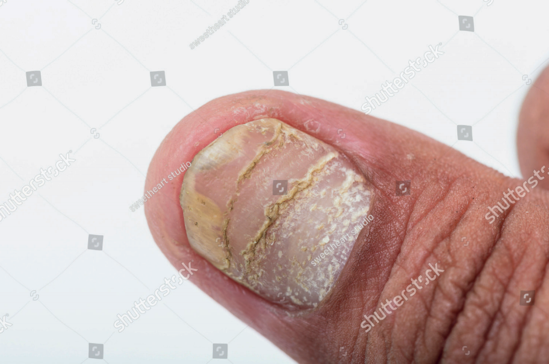 Separation of the nail from the nail bed can cause infections like Onycholysis in which a yellow patch develops on the tip that extends to the cuticle.
Separation of the nail from the nail bed can cause infections like Onycholysis in which a yellow patch develops on the tip that extends to the cuticle.